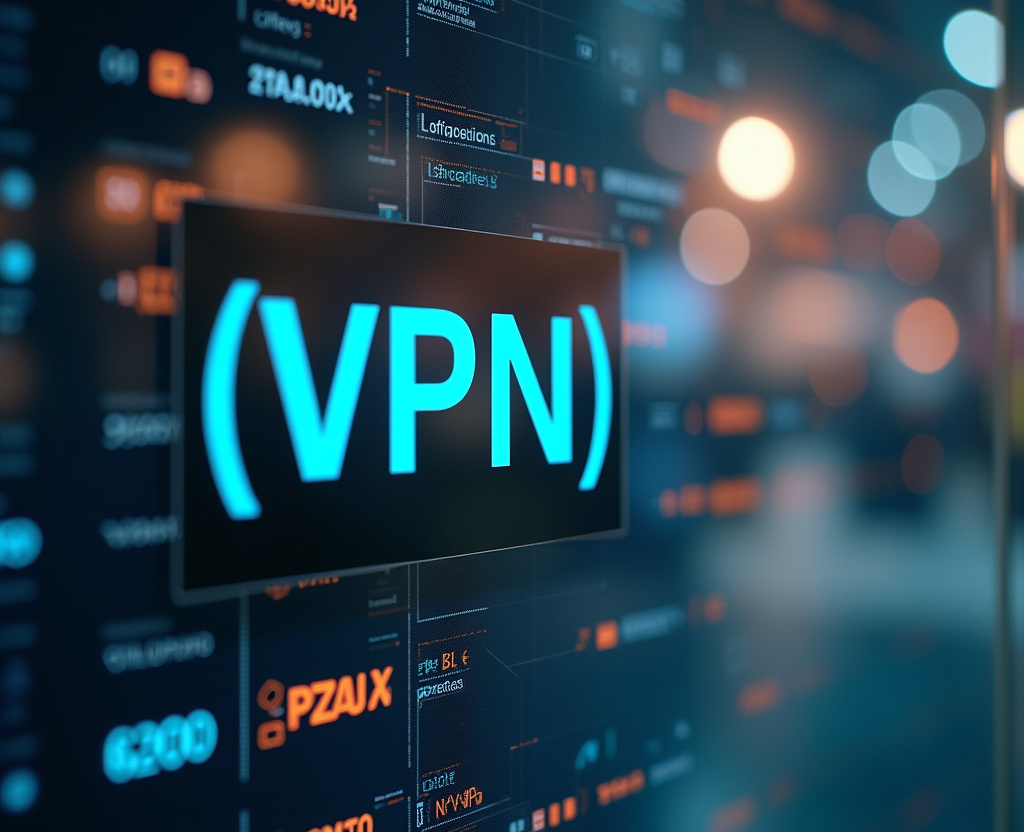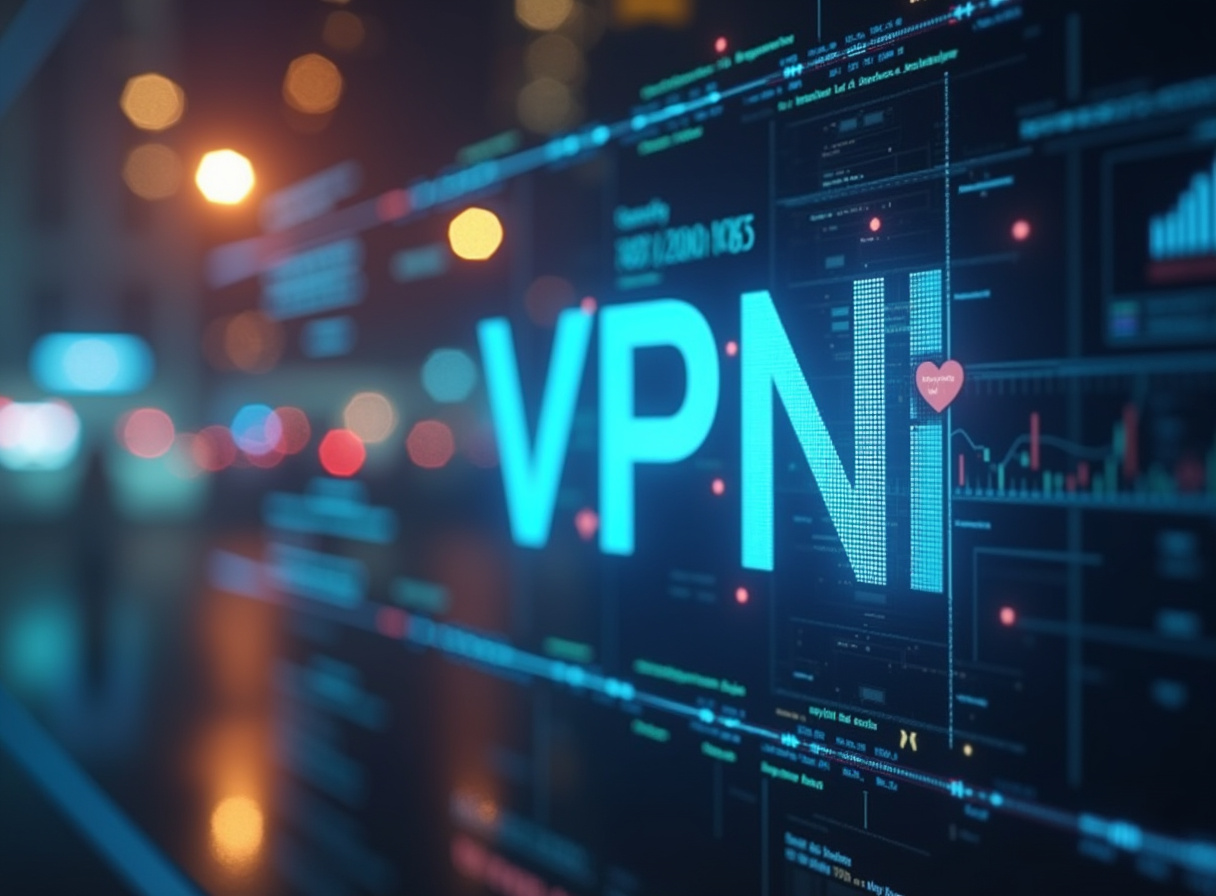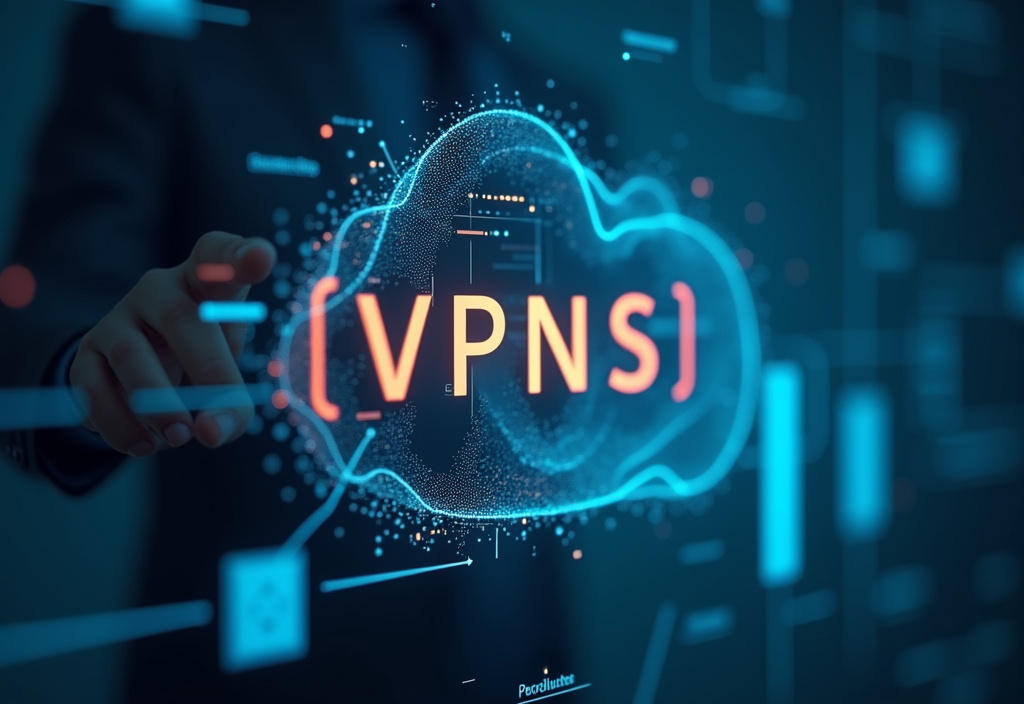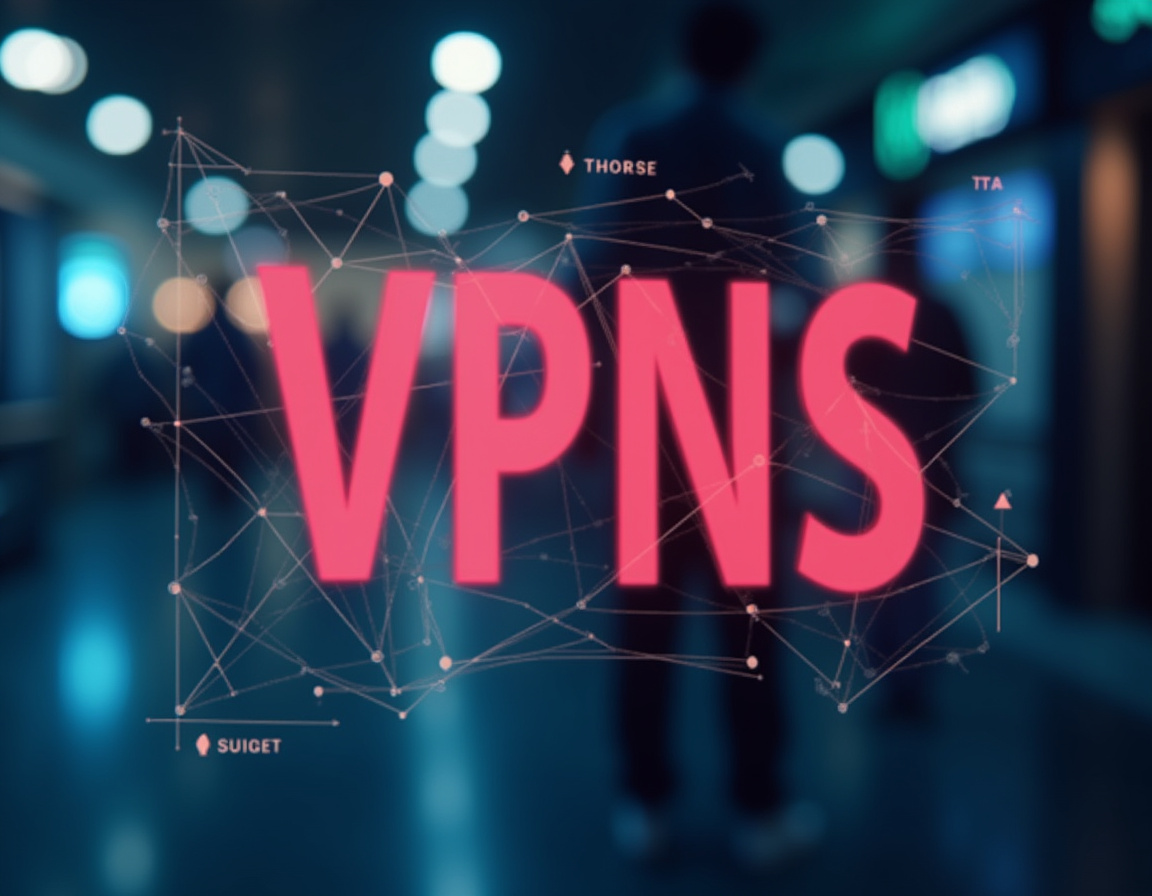VPNs for Construction Equipment Rentals: Securing Transactional Data

Table of Contents
VPNs for Construction Equipment Rentals: Securing Transactional Data
In the dynamic landscape of the modern construction industry, the rental of equipment has become an increasingly digital process. What was once a predominantly physical transaction, conducted face-to-face with paperwork and manual confirmations, has evolved into a streamlined, online experience. While this digital transformation has undoubtedly ushered in greater efficiency and accessibility, it has also introduced a new layer of complexity: the need to safeguard sensitive transactional data and protect the privacy of customer interactions.
This article delves into the critical role of VPNs (Virtual Private Networks) in securing construction equipment rental businesses, offering a deep dive into how these tools can minimize cybersecurity risks and enhance overall operational resilience. The construction equipment rental sector is a significant economic driver, facilitating projects of all sizes by providing access to specialized machinery without the prohibitive costs of ownership. This rental process, however, inherently involves the handling of sensitive data.
Customers provide personal information, including contact details, financial data for payments, and project specifications, such as site locations and timelines. Rental companies, in turn, collect and store this data, alongside internal operational information like equipment usage logs, maintenance schedules, and pricing agreements. A single security breach could expose this entire ecosystem of information, leading to devastating consequences for both the company and its customers.
The move to online platforms for rentals has expanded the potential attack surface for cybercriminals. Websites, mobile applications, and cloud-based management systems used for booking, payment processing, and equipment tracking all present potential vulnerabilities. Hackers can exploit these entry points to gain unauthorized access to databases, intercept data transmissions, and disrupt operations.
Common cyber threats include malware infections, phishing attacks designed to steal login credentials, and distributed denial-of-service (DDoS) attacks aimed at crippling online services. Even seemingly innocuous activities, such as employees accessing company networks from unsecured public Wi-Fi hotspots, can create significant security risks. The consequences of a data breach in the construction equipment rental industry can be far-reaching.
Financial losses can stem from direct theft of funds, legal liabilities for data privacy violations, and the cost of remediation efforts, such as system repairs, customer notification, and credit monitoring services. Reputational damage can also be severe, eroding customer trust and leading to a loss of business. Beyond the immediate financial impact, a security breach can disrupt operations, delaying projects, and potentially endangering workers if critical equipment data is compromised.
To combat these threats, construction equipment rental businesses are increasingly turning to VPNs. A VPN creates a secure, encrypted connection between a user's device and a remote server, effectively tunneling all internet traffic through this protected pathway. This encryption process scrambles the data, making it unreadable to anyone who might intercept it.
By masking the user's IP address, a VPN also provides anonymity, making it harder for attackers to track online activity and identify potential targets. Effectively, a good VPN becomes a digital shield, protecting sensitive transactional data and safeguarding customer privacy from a multitude of cyber threats. The key is utilizing a VPN service tailored for high-security environments, not a free or low-cost alternative that may lack robust encryption protocols or have questionable privacy practices.
By investing in a reliable VPN, construction equipment rental companies can significantly strengthen their cybersecurity posture and ensure the continued success of their digital operations.
Transactional data security is of paramount importance in the construction equipment rental sector, as it directly underpins the financial integrity of both the business and its clientele. Every digital transaction, be it a customer reserving a piece of machinery or a supplier updating inventory figures, invariably necessitates the exchange of confidential financial details. Absent robust security protocols, this sensitive information is vulnerable to interception by malicious entities employing techniques like man-in-the-middle (MITM) attacks, wherein cybercriminals insinuate themselves into the communication pathway between sender and receiver to pilfer data as it transits.
The construction VPN emerges as a linchpin in neutralizing these perils, encrypting all transactional data to render it indecipherable to any unauthorized party that might attempt to intercept it. This encryption process effectively transforms the data into an unintelligible format, guaranteeing that even in the event of a successful intrusion, the compromised information remains unusable to the attacker. This is particularly salient during the processing of credit card payments, where stringent adherence to the Payment Card Industry Data Security Standard (PCI DSS) is mandated to protect sensitive cardholder data.
Non-compliance with PCI DSS is punishable by substantial fines and reputational damage, further underscoring the critical need for robust encryption. The purview of transactional data security extends beyond mere financial information, encompassing other critical data elements such as project blueprints, precise equipment specifications, and legally binding contractual agreements. These documents often harbor proprietary and sensitive information that could be exploited by competitors or repurposed for illicit activities.
By extending encryption to all data traversing the construction VPN, businesses effectively preclude unauthorized access to these invaluable resources, safeguarding their competitive advantage and mitigating the risk of intellectual property theft or misuse. A construction VPN also fosters a heightened degree of anonymity, which enhances the overall security profile of transactional data. By cloaking the user's IP address, the VPN makes it considerably more difficult for hackers to pinpoint the origin of transactions and identify prospective targets for cyberattacks.
This is especially crucial for businesses operating in regions characterized by high cybercrime rates or those subject to government surveillance, where heightened anonymity can serve as a valuable deterrent against malicious actors. Moreover, a best-in-class construction VPN solution will incorporate additional safeguards such as a kill switch, which acts as an emergency failsafe. In the event of an unexpected VPN connection dropout, the kill switch automatically severs the internet connection, preventing any unencrypted data from being transmitted and thus averting potential data leaks.
This feature ensures that sensitive transactional data remains perpetually protected, even in the face of unforeseen technical glitches. In essence, the adoption of a comprehensive security strategy underpinned by a robust construction VPN empowers construction equipment rental businesses to cultivate a fortified digital environment that safeguards their financial well-being and that of their customers. This, in turn, engenders trust and fosters enhanced customer loyalty, ultimately contributing to sustained business growth and long-term viability.
Implementing a VPN is not just about ticking a box on a security checklist, but rather, it's about building a foundation of trust and confidence in a digital world where cyber threats are constantly evolving. Businesses that prioritize transactional data security through VPNs are better positioned to thrive and maintain a competitive edge.
Customer interaction represents another essential facet of construction equipment rental businesses that necessitates robust security measures. In the contemporary digital era, customer interactions have largely migrated to online channels encompassing websites, email correspondence, and dedicated mobile applications. These digital exchanges inherently involve the transmission of personal information, including names, postal addresses, telephone numbers, and email addresses, as well as critical project-related details and precise equipment specifications.
Upholding the confidentiality and integrity of this information is paramount to preserving customer privacy and fostering trust. A construction VPN can substantially bolster the security of customer interactions by encrypting all data transmitted between the customer's device and the business's secure servers. This preempts eavesdropping and unauthorized data interception, guaranteeing that sensitive customer information remains confidential and shielded from prying eyes.
This becomes especially crucial when customers access online services via unsecured public Wi-Fi networks, which are notorious for their vulnerability to hacking and malicious exploitation. By utilizing a construction VPN, customers can confidently safeguard their valuable data even when connected to public Wi-Fi hotspots, secure in the knowledge that their information is consistently encrypted and protected. Furthermore, the implementation of a construction VPN can play a crucial role in mitigating the risk of phishing attacks, which constitute a common and insidious tactic employed by cybercriminals to pilfer customer credentials and access sensitive data.
Phishing attacks typically involve the dissemination of fraudulent emails or text messages meticulously crafted to mimic legitimate business communications, enticing unsuspecting customers to click on malicious links or inadvertently divulge their login credentials. By leveraging a construction VPN, customers can effectively mask their IP address and physical location, substantially increasing the difficulty for phishing attackers to pinpoint and target them effectively. This proactive measure dramatically reduces the likelihood of falling victim to such deceptive schemes.
In addition to safeguarding customer data, a construction VPN effectively enhances the security of internal communications conducted between employees and valued customers. This is particularly vital when exchanging sensitive project-specific details or transacting financial information over digital channels. By diligently encrypting all communication pathways, a construction VPN ensures that only duly authorized parties can gain access to the information, preventing data leaks and protecting against unauthorized disclosure of confidential materials.
The implementation of a robust construction VPN solution demonstrates a firm commitment to upholding customer privacy, which can serve as a significant competitive differentiator in today’s increasingly discerning market. Consumers are progressively more aware of the importance of data privacy and are more likely to conduct business with organizations that demonstrably prioritize the protection of their personal information. By actively investing in a construction VPN, businesses send a clear message that they take customer data security with the utmost seriousness, fostering a sense of trust and confidence that can translate directly into enhanced customer loyalty and long-term business retention.
Securing customer interactions with a VPN is therefore not merely a technical consideration, but a strategic imperative that contributes directly to building strong customer relationships and a positive brand reputation.
Privacy, frequently conflated with security but possessing distinct connotations, embodies a fundamental tenet in the realm of construction equipment rentals operating within the digital sphere. While security encompasses the multifaceted strategies implemented to shield data from unauthorized access and cyber threats, privacy transcends mere protection, focusing on the ethical handling and utilization of personal information. In essence, privacy underscores the rights of individuals to exert control over how their data is collected, utilized, and disseminated.
Construction equipment rental firms accumulate a substantial volume of personal data, including customer identification details, contact information, financial records, project specifications, and usage patterns of rented equipment. This data, while essential for various operational facets, carries inherent privacy ramifications. Customers entrust their personal data to these businesses with the implicit expectation that it will be wielded responsibly and safeguarded against unwarranted disclosure.
A construction VPN assumes a pivotal role in upholding customer privacy by restricting the surreptitious tracking and profiling of their online activities. Without a VPN, internet service providers (ISPs), advertising networks, and other third-party entities can potentially monitor and log online browsing habits, location data, and other personal identifiers. This data can then be employed for targeted advertising, profiling, or even sold to data brokers.
By masking a customer's IP address and encrypting their internet traffic, a construction VPN thwarts these tracking attempts, affording users a higher degree of anonymity and control over their digital footprint. Moreover, a construction VPN can assist businesses in complying with stringent data privacy regulations, such as the General Data Protection Regulation (GDPR) and the California Consumer Privacy Act (CCPA). These regulations mandate that businesses implement appropriate technical and organizational measures to protect personal data, including encryption and access controls.
A construction VPN can serve as a key technical measure in fulfilling these compliance obligations, helping businesses avoid hefty fines and reputational repercussions associated with data privacy violations. Beyond mere compliance, prioritizing customer privacy cultivates a culture of trust and transparency. By explicitly communicating their commitment to data privacy and empowering customers with control over their personal information, businesses can fortify customer relationships and foster brand loyalty.
This can be achieved through implementing transparent privacy policies, obtaining explicit consent for data collection, and providing customers with accessible mechanisms to review, modify, or delete their personal data. The selection of a construction VPN provider should also accord paramount importance to the provider's own privacy policies and data handling practices. Businesses should opt for providers with a proven track record of upholding user privacy, refraining from logging user activity, and adopting robust security measures to safeguard their own infrastructure against data breaches.
In conclusion, prioritizing privacy through the implementation of a construction VPN represents an ethical and strategic imperative for construction equipment rental businesses. By safeguarding customer data, preventing unwarranted tracking, and complying with privacy regulations, these businesses can cultivate trust, strengthen customer relationships,
VPNs for services, encompassing construction equipment rentals, extend beyond mere security and privacy fortifications, offering tangible enhancements to service reliability and operational efficiency. In the contemporary digital ecosystem, service accessibility and consistent performance are pivotal for maintaining customer satisfaction and orchestrating seamless business operations. Geographical restrictions, network congestion, and bandwidth limitations can frequently impede service delivery, especially for construction equipment rental outfits catering to geographically dispersed clientele or operating in regions with unreliable internet infrastructures.
A construction VPN can circumvent these limitations, augmenting service reliability and ensuring uninterrupted access to essential resources. One prevalent application of VPNs in this context involves circumventing geo-restrictions and accessing region-specific content. Construction projects frequently necessitate access to localized data, regulations, and resources that may be geographically constrained.
For instance, accessing weather forecasts, geological surveys, or local building codes may be contingent upon having an IP address originating from a specific region. A construction VPN empowers users to effectively spoof their location, assuming an IP address from the requisite geographical area, thereby circumventing geo-restrictions and gaining unrestricted access to pertinent information. Furthermore, a construction VPN can optimize network performance and mitigate the effects of bandwidth throttling.
Internet service providers (ISPs) occasionally engage in bandwidth throttling, intentionally decelerating internet speeds for specific applications or traffic types. This practice can significantly impede the performance of online services, including construction equipment rental platforms, leading to sluggish loading times, interrupted transactions, and a suboptimal user experience. By encrypting internet traffic, a construction VPN obfuscates the type of data being transmitted, effectively preventing ISPs from identifying and throttling specific applications.
This can result in noticeably improved network performance and a more seamless user experience. In addition to circumventing restrictions and optimizing performance, a construction VPN can also enhance the reliability of remote access to critical systems and data. Construction equipment rental businesses often rely on remote access for various operational tasks, such as equipment monitoring, inventory management, and customer support.
When employees access company networks remotely, especially from unsecured public Wi-Fi networks, they become vulnerable to cyber threats. A construction VPN creates a secure, encrypted tunnel for remote access, protecting sensitive data from interception and ensuring the confidentiality of communications. This is particularly crucial for field technicians who may need to access equipment manuals, diagnostic tools, or customer databases while on-site at construction locations.
By providing secure and reliable remote access, a construction VPN empowers employees to perform their duties efficiently, regardless of their physical location. Moreover, implementing a construction VPN can facilitate smoother and more dependable communication between geographically dispersed teams. Construction projects often involve collaboration between multiple stakeholders, including architects, engineers, contractors, and suppliers, who may be located in different regions or even different countries.
A construction VPN can provide a secure and consistent communication channel, allowing teams to share files, exchange information, and coordinate tasks efficiently. In conclusion, the strategic deployment of construction VPNs extends far beyond data security and privacy considerations, offering tangible benefits in terms of service reliability, network performance, and operational efficiency. By
Stay Updated
Get the latest VPN news, tips, and exclusive deals to your inbox.




